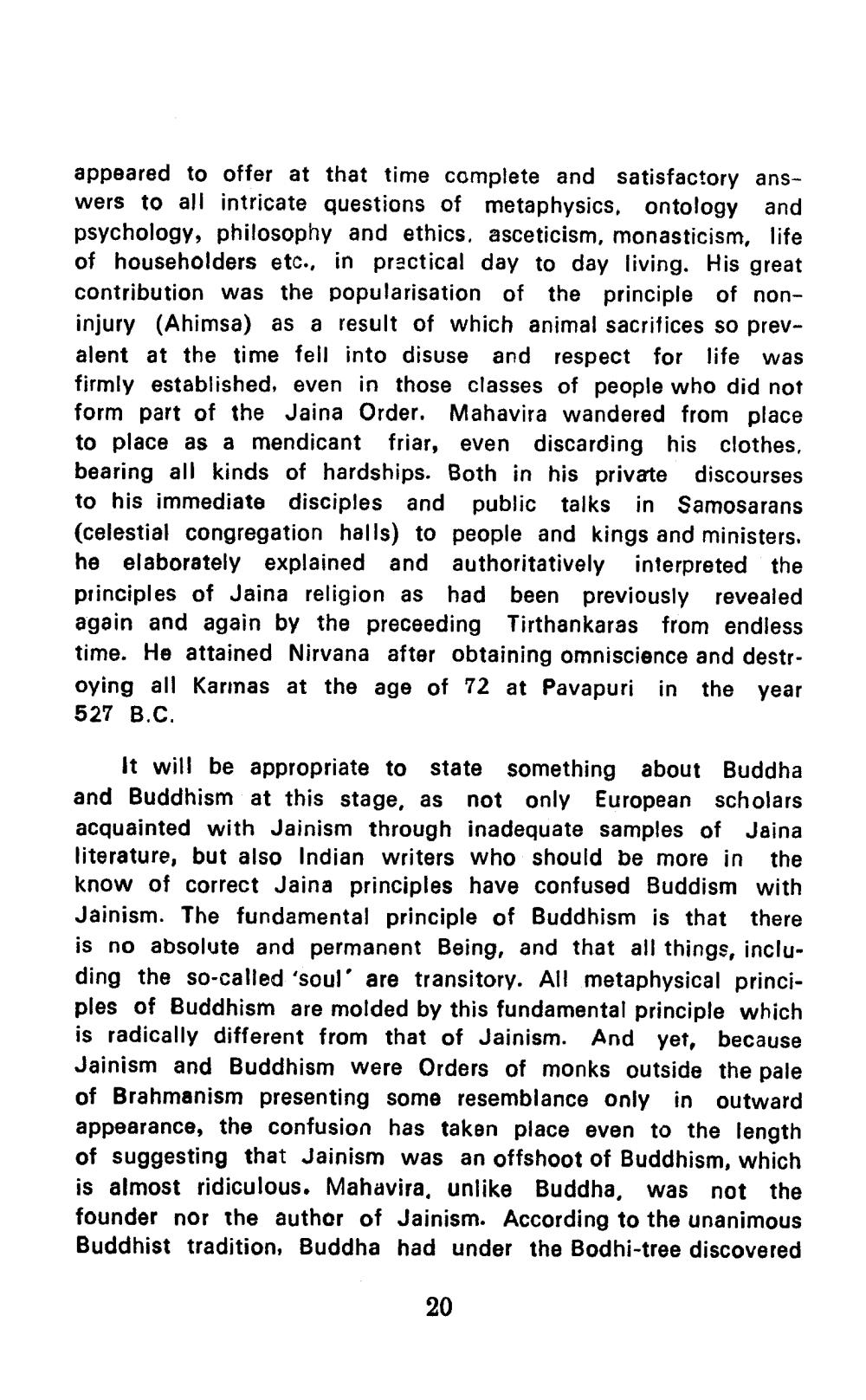________________
appeared to offer at that time complete and satisfactory answers to all intricate questions of metaphysics, ontology and psychology, philosophy and ethics, asceticism, monasticism, life of householders etc., in practical day to day living. His great contribution was the popularisation of the principle of noninjury (Ahimsa) as a result of which animal sacrifices so prevalent at the time fell into disuse and respect for life was firmly established, even in those classes of people who did not form part of the Jaina Order. Mahavira wandered from place to place as a mendicant friar, even discarding his clothes, bearing all kinds of hardships. Both in his private discourses to his immediate disciples and public talks in Samosarans (celestial congregation halls) to people and kings and ministers. he elaborately explained and authoritatively interpreted the principles of Jaina religion as had been previously revealed again and again by the preceeding Tirthankaras from endless time. He attained Nirvana after obtaining omniscience and destroying all Karınas at the age of 72 at Pavapuri in the year 527 B.C.
It will be appropriate to state something about Buddha and Buddhism at this stage, as not only European scholars acquainted with Jainism through inadequate samples of Jaina literature, but also Indian writers who should be more in the know of correct Jaina principles have confused Buddism with Jainism. The fundamental principle of Buddhism is that there is no absolute and permanent Being, and that all things, including the so-called 'soul' are transitory. All metaphysical principles of Buddhism are molded by this fundamental principle which is radically different from that of Jainism. And yet, because Jainism and Buddhism were Orders of monks outside the pale of Brahmanism presenting some resemblance only in outward appearance, the confusion has taken place even to the length of suggesting that Jainism was an offshoot of Buddhism, which is almost ridiculous. Mahavira, unlike Buddha, was not the founder nor the author of Jainism. According to the unanimous Buddhist tradition, Buddha had under the Bodhi-tree discovered
20




